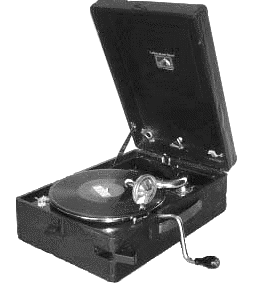Sound Quality
This section is about how components in computer based audio might possibly affect sound quality.
Quality is hard to define but we recognize it when we see it. Likewise if we hear it.
It is very subjective so it is up to you to decide what suites you best.
To ask for the best sound quality possible is an impossible question, there are so many conflicting opinions, it is impossible to say what is best.
Browse some audio forum, read about tubes versus solid state, vinyl versus CD, it's like Mac versus Windows; you are in for conflicting opinions often ending in a highly amusing flare.
What to do if you read in a forum that a lossless compressed format sounds less than an uncompressed format?
I have done a lot of reading the past few days and have come across numerous bits of info suggesting that - whilst ALAC/FLAC are bit-identical to WAV/AIFF files, it is the decompressing during playback that can affect sound quality.
What I wanted to ask is:
1. can I use the FLAC files ripped/tagged in EAC and concert to AIFF on the Mac? Or would I need to rip straight to AIFF (e.g., using Max or XLD on the Mac)?
2. if it is ok to convert from FLAC to AIFF, does it maintain the tag information?
3. I experimented by using iTunes to convert one of the ALAC albums to AIFF and it seemed to keep the tags. Was this storing tags in the AIFF file or was it since the file information is already saved in the iTunes library/database files?
This is a typical case of audiophile nervosa, some people report to hear a difference so you must move to an uncompressed format as hell. Keep your cool, rip to WAV, FLAC, any format you want and listen if you are hearing any difference at all before you embark on a maybe senseless format conversion.
Keep in mind that reported differences in general are presented as absolute.
In practice we talk about an entire chain with a myriad of parameters like:
- the audio sources used
- the gear used
- the room acoustics
- the hearing of the observer
- the perception of the observer
- etc
- etc
Often the experimental design and the experimental setup are "casual" and badly documented if documented at all.
Most of the time the testing is done sighted.
We humans don’t hear, we perceive. We mix the sensory stimuli with our cognitions.
Most people are totally unaware of this.
This explains the big differences between sighted and unsighted tests.
All those night and day differences all of a sudden disappear the moment our cognitions, expectation bias, whatever, are removed from the equation.
There is a difference between hearing a difference and qualifying this difference (better, blown away, dark gets darker, veil lifted, deeper soundstage, etc.).
Our perception is simply not the most reliable of measuring equipment but it is all we have to assess sound quality.
The laptop server performed flawlessly over the 4 days of CES.
You know digital is being done right when groups of visitors to the room sit down and tell each other how analog is far better than any digital playback - and then see me taking the record off and putting another on and the song is still playing
Gary L Koh
I used to try out all sorts of tweaks and other nonsense such as making my own cables. I was always thrilled when I first plugged in the new goody (it almost always "improved" the sound), but I always noticed that "new sound" effect didn't last more than a few days. Indeed, often after a few days I was glad to pull the tweak out of the system and go back to the way it was. Which ironically also "improved" the sound.

